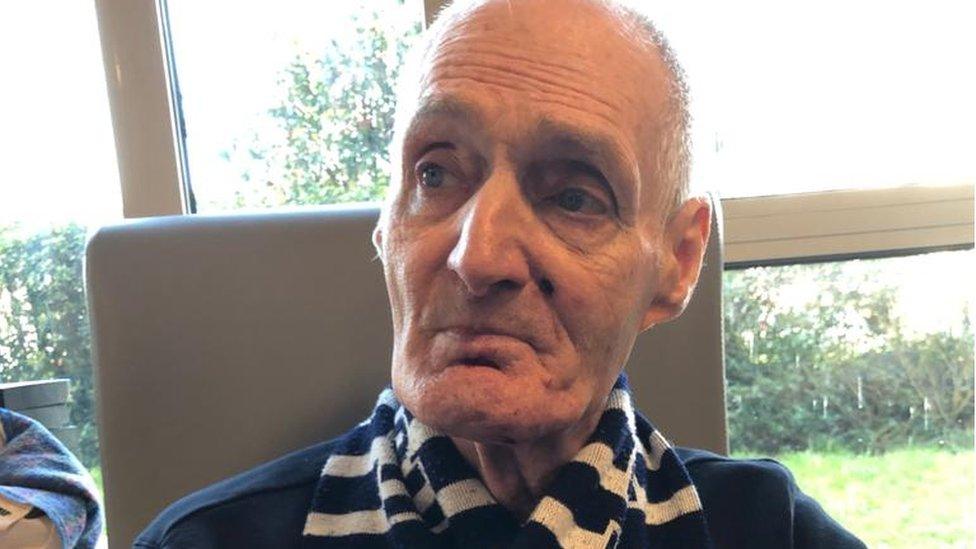Coronavirus: Care home visitors to be supervised at all times
- Published
- comments
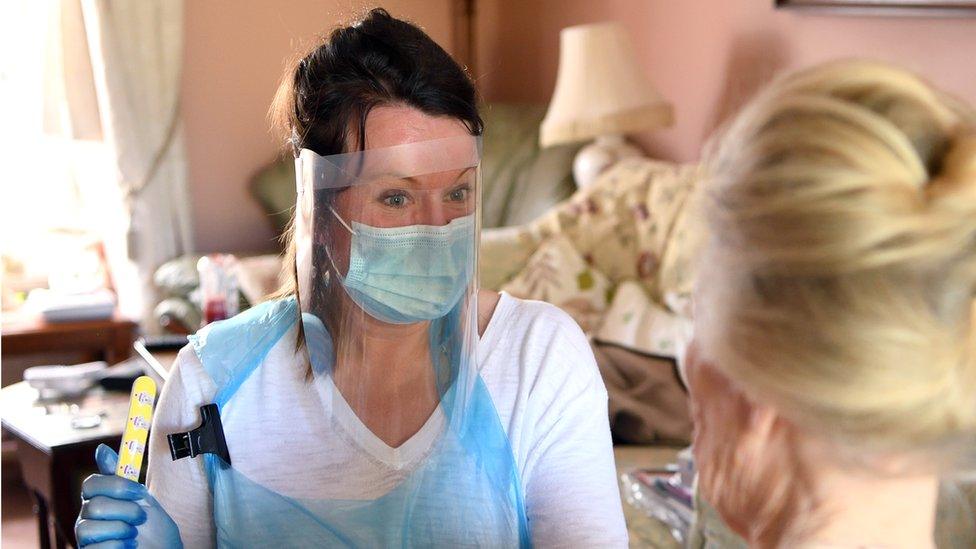
A care worker visits a client at home in Borehamwood, Hertfordshire, during the pandemic
People visiting residents in care homes should be supervised at all times to ensure social distancing, according to a government winter plan for Covid-19, external.
It says visits must be limited and in "areas of intervention" they must be stopped altogether.
Support for care homes in the plan includes free personal protective equipment until next March.
Councils say the initiative is welcome, but there are significant gaps in funding.
Writing to the heads of local authorities, Care Minister Helen Whately said "now is the time to act" to protect care homes.
She said visits are "important for the wellbeing of residents and loved ones" but that extra precautions are needed.
They include regular assessments by local authorities of whether visiting is safe in a particular area, with visits immediately halted in places listed as an "area of intervention", Public Health England's highest category of alert where local lockdown rules are imposed.
In every care home, visitors should be supervised "at all times" to ensure they keep to social distancing requirements and other infection control measures, the plan says.
Before the publication of the plan, Age UK said some people are "dying of sadness" in care homes because they have been cut off from loved ones for a prolonged period of time.
Care homes in England were allowed to reopen again for family visits in July - as long as local authorities and public health teams said it was safe. A similar reopening of homes followed in Scotland, Wales and Northern Ireland.
Lynn hasn't seen her husband, who has dementia, for six weeks due to care home restrictions
However, many homes have not yet fully reopened - either retaining strict rules over visitors or banning them completely.
The government has previously announced care homes would get £546m to try to reduce transmission of the virus as part of its winter plan.
The money will help to pay care workers their full wages when they are self-isolating, and ensures carers only work in one care home, reducing the spread of the virus.
BBC social affairs correspondent Alison Holt said that for a sector still reeling from the high number of deaths, "this plan is important".
Providing free PPE - such as masks - recognises the steep increase in the cost of supplies, she said.
And a new role of chief nurse for social care, which will be created under the plan, "should also provide a stronger national voice for the sector".
But while welcoming the plan, some directors of council care services have said it does not address the need to pay care staff better.
It also does not provide the funding needed to meet the expected increase in demand, particularly for home care, over the winter, they added.
How care home workers are trying to cope
Health Secretary Matt Hancock told the House of Commons the government would do "whatever is humanly possible" to protect care homes "so they are a place of sanctuary this winter".
Ministers have also promised to make people in care homes a priority for coronavirus tests - along with the NHS - amid ongoing issues with the UK's testing system.

YOUR QUESTIONS: We answer your queries
SOCIAL LIFE: Is it safe to go to the pub?
VACCINE: How close are we to finding one?
SUPPORT BUBBLES: What are they and who can be in yours?

Coronavirus swept through UK care homes during the peak of the outbreak, with tens of thousands of deaths.
Almost 30,000 more care home residents in England and Wales died during the coronavirus outbreak than during the same period in 2019, Office for National Statistics figures published in July show. But only two-thirds were directly attributable to Covid-19.
According to the figures, there were just over 66,000 deaths of care home residents in England and Wales between 2 March and 12 June this year, compared to just under 37,000 deaths last year.
- Published13 September 2020

- Published15 August 2020
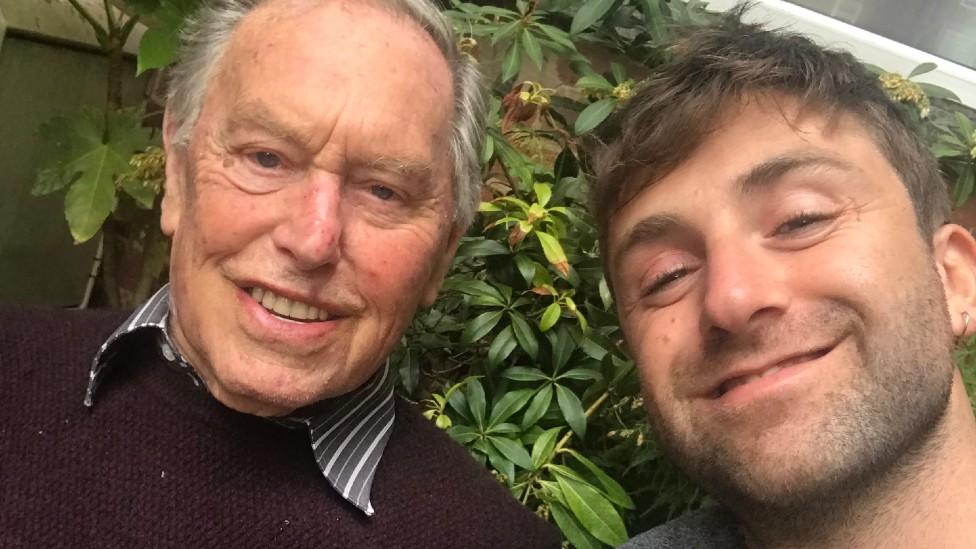
- Published15 September 2020
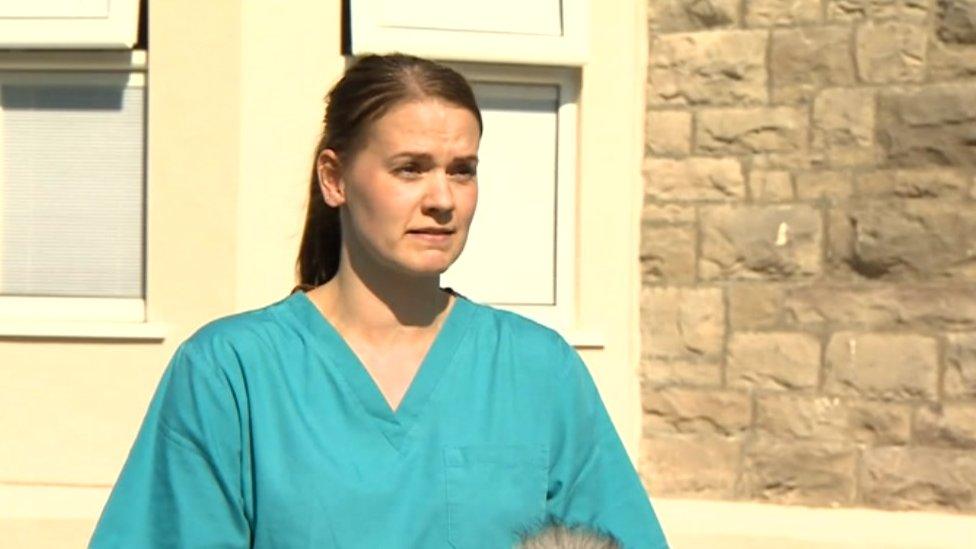
- Published17 September 2020
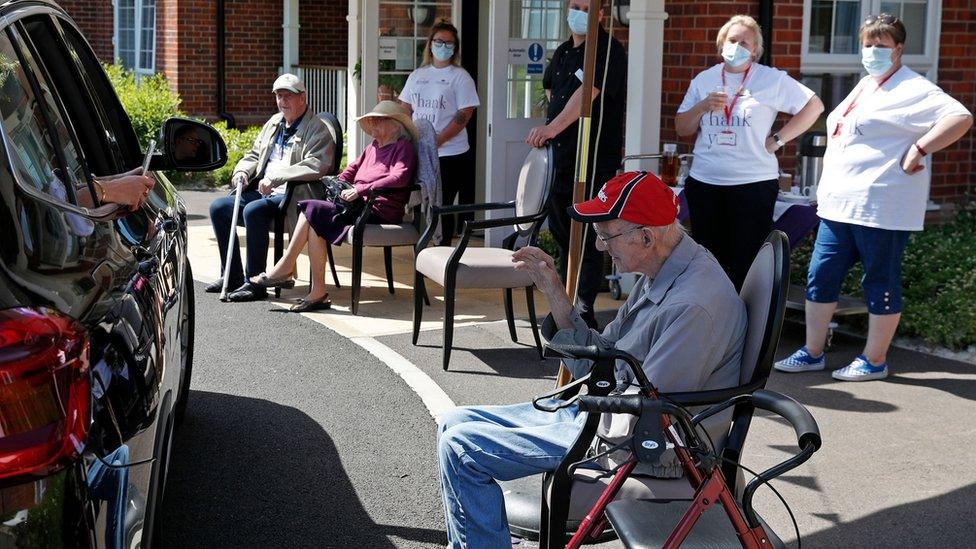
- Published3 July 2020
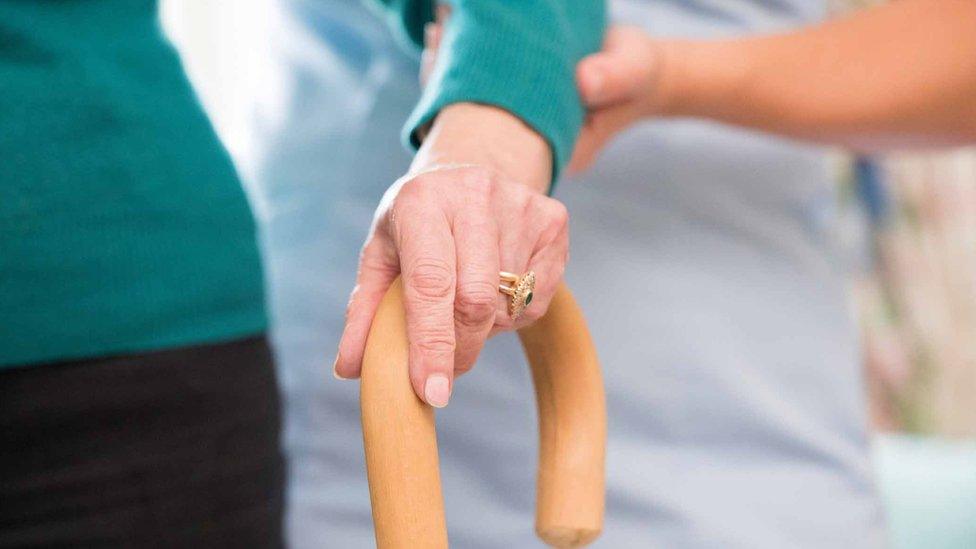
- Published3 September 2020
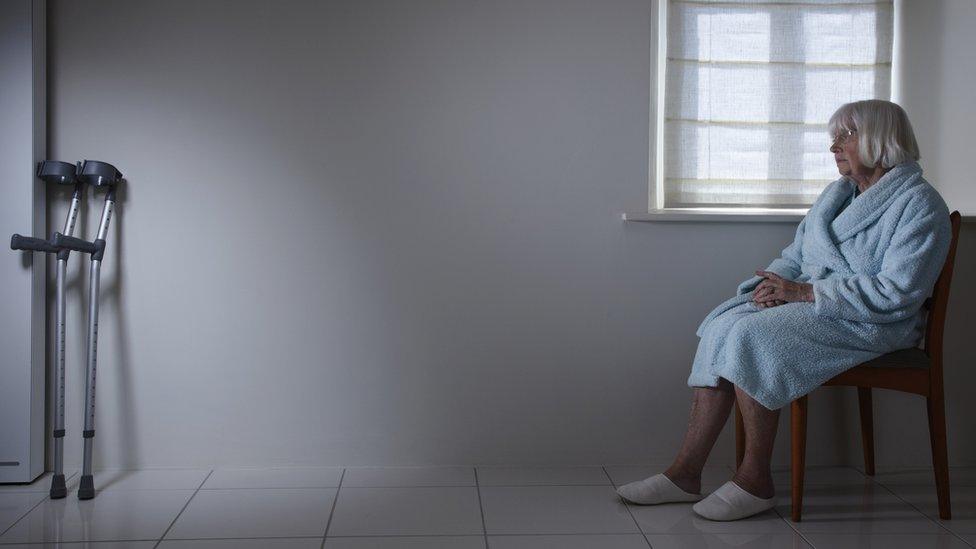
- Published20 August 2020
